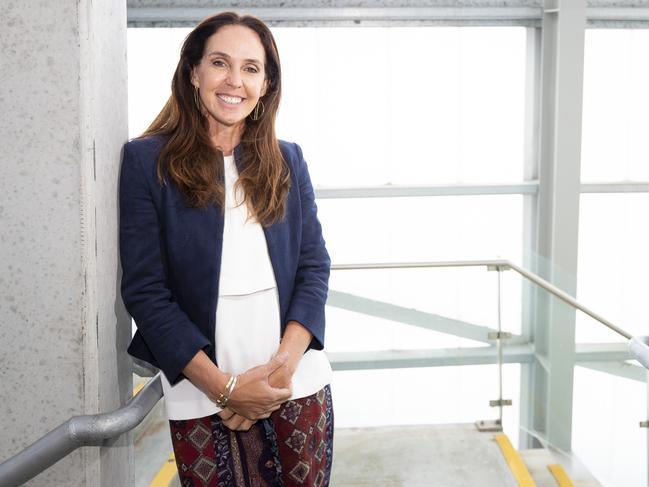Boost Juice founder Janine Allis offers tips for starting a small business in a tough climate
Boost Juice founder and Survivor contestant Janine Allis reveals the number one thing Aussie businesses are doing wrong — and what they need to do to survive.
Careers
Don't miss out on the headlines from Careers. Followed categories will be added to My News.
Australians starting businesses without leaving their day jobs could be setting themselves up for failure, according to Boost Juice founder Janine Allis.
The Survivor contestant and Shark Tank shark said business owners needed to put their soul into their business – and abandon any thoughts of doing side hustles – to make it work
“Some people can do a side hustle while on maternity leave or do it at night after work and maybe that’s not a bad way to get started because you are not risking (much), but it’s a lot of stress because businesses work nine to five,” she said.
“When you do it that way, you tend to do everything poorly.
“I had a side hustle as a mum and I was doing it poorly – I was the one that the other parents hung out with to feel good about their parenting.
“I do think it is difficult side hustling and it does increase the risk of it not succeeding.
“It doesn’t mean it won’t succeed, but it makes it harder.”

Figures from the Australian Bureau of Statistics show about 16 per cent of workers juggled more than one job or business during 2016-17.
It was most common among young people, with a quarter of under-30s working in multiple roles.
ABS data also showed Australians were increasingly turning to entrepreneurship, with the number of active businesses up by 3.4 per cent between the 2016-17 and 2017-18 financial years.
Not all survived, however, and the market was particularly tough for small businesses.
The rate of new businesses entering the market grew from 15.1 per cent to 15.8 per cent but the rate of those exiting was also up (from 12 per cent to 12.5 per cent).
Just half of non-employing businesses that launched in 2014-15 were still operating three years later.
MORE: When it’s OK to lie on your CV
MORE: How to answer quirky interview questions
Mrs Allis, who has partnered with Vistaprint to help small businesses uncover their “why factor” and stand out in a competitive marketplace, said business success came down to adaptability and drive.
“I think the reality is that in any decade or generation, businesses will have difficulty,” she said.
“Twenty years ago most businesses failed, and today most businesses fail, but now people have to adapt probably more than they needed to (in the past).
“In every generation there are the high achievers and those that just want to relax and not necessarily work hard.
“It’s in the attitude (and) a matter of finding the right people that have the right drive.”
She also recommended working really hard on “the boring stuff”, such as details and systems.

Alan Manly, founder of Group Colleges Australia and author of The Unlikely Entrepreneur, said there might never be a right time to launch a business, but with careful calculation there might be an acceptable time.
“Evaluate the employer benefits you currently enjoy, such as paid leave, sick leave and the ability to sleep not worrying about company cashflow, and write down the entire value of your salary package including the extras – can you afford to live without it for a while?” he said.
“It’s also important to analyse the market to figure out when to take the leap – is there a current need for your product or service? Is there a trend for growth in your chosen industry? How long will it take to establish yourself and will the market have moved on in that time? What is the competition like?”
“When it comes to timing, arm yourself with the facts and be realistic.”

TIPS FOR BUSINESS SUCCESS IN A TOUGH ECONOMIC CLIMATE
SOURCE: Brent Watts, director of ventures and investment at QUT bluebox
1 Remember there is never a perfect time to start up a business
2 Choose a product and market you are deeply passionate about
3 Become a resource magnet – gain support for your business as early as possible
4 Continuously validate your ideas with prospective customers and never stop listening to them
5 Build a team that complements you and can sustain through the ups and downs
6 Work harder than you ever have before and out-effort your competition
READ MORE CAREERS NEWS IN THE CAREERS SECTION OF SATURDAY’S THE COURIER-MAIL, THE ADVERTISER, THE DAILY TELEGRAPH AND THE HERALD SUN


